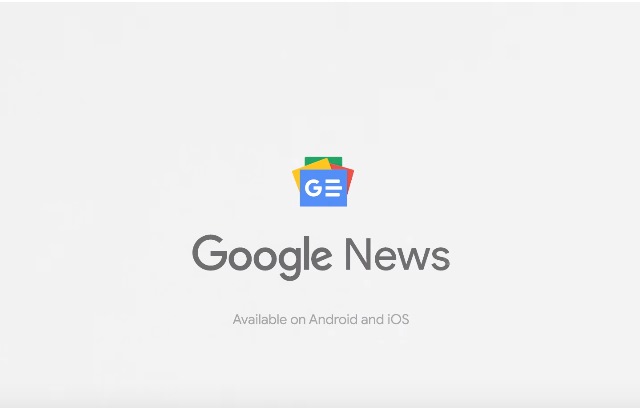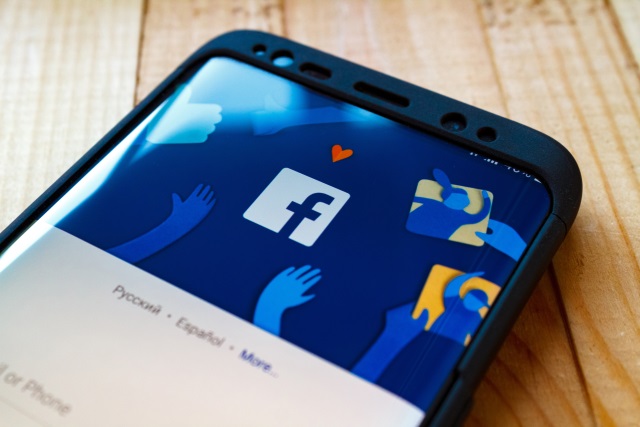
Snopes ends its fact-checking partnership with Facebook
There are numerous problems associated with Facebook, but the two that are talked about most are privacy and the spread of "fake news". To help combat the dissemination of misinformation, the social network partnered with numerous companies and news outlets to fact-check stories.
One of these partners was Snopes, the site famous for debunking myths, urban legends and fake news. But now the site has announced that it is ending its partnership with Facebook, citing " the ramifications and costs of providing third-party fact-checking services".

Even Microsoft Edge thinks the Daily Mail website is an untrustworthy source of news
Users of Microsoft Edge have a new feature to help protect them from fake news. The Android and iOS versions of the Edge browser now offer NewsGuard integration, warning when people visit untrustworthy sites.
The feature may only just have gone live, but there are already some amusing -- or pleasing, depending on your point of view -- results coming from it. Perhaps the most notable is that the Daily Mail website, Mail Online, is flagged up as "generally fails to maintain basic standards of accuracy and accountability".

Google denies bias after Trump launches accusatory attack on the search giant
Donald Trump has accused Google of rigging its search results so that "good news" about the president is drowned out by unfavorable stories from the "Fake News Media".
Using his preferred medium of Twitter, he alleged that 96 percent of search results for "Trump News" were from the "National Left-Wing Media", something he described as "very dangerous". Google denied these accusations of political bias, saying searching results are controlled by constantly-updated algorithms.

The future role of AI in fact checking
As an analyst, I’d like to have a universal fact checker. Something like the carbon monoxide detectors on each level of my home. Something that would sound an alarm when there’s danger of intellectual asphyxiation from choking on the baloney put forward by certain sales people, news organizations, governments, and educators, for example.
For most of my life, we would simply have turned to academic literature for credible truth. There is now enough legitimate doubt to make us seek out a new model or at a minimum, augment that academic model.

Free Chrome extension helps internet users spot fake news
The rise of fake news has affected many people's faith in the internet as a reliable source. In order to help with the problem, Adblock Plus maker eyeo is launching a new browser extension called Trusted News.
Available free for Chrome browsers, the extension works by checking domains, websites, and news sources against the world's largest network of fact-checking databases.

Facebook is killing off Trending as it tries to revamp newsfeeds
Facebook has announced plans to kill off the Trending feature of its newsfeed. The social network says that this is to "make way for future news experiences".
Over the years, Facebook has experimented endlessly with the presentation of news, and has faced criticism for failing to weed out "fake news" and also accusations of liberal bias. Now the company wants to find new ways to help people find news that matters to them, ensuring that it comes from reliable sources.

Google News gets a major revamp and an AI injection
Today at its I/O developer conference, Google revealed major changes for Google News. The company says that the revamp combines the best of artificial intelligence with the best of human intelligence, and it sees Google try to rebuild the trust people have in online news.
As well as a revamp of the underlying technology, there are also changes in presentation. A "For You" section in the app provides easy access to the most relevant stories that will be of personal interest, and there are also new opportunities for readers to delve deeper into stories via various news outlets, social media, videos and more via a new timeline tool.
Et tu, Tumblr? Blogging site says it was used by Russia to spread fake news in 2016
When it comes to talk of Russian interference in the 2016 US presidential election that saw Donald Trump catapulted to power, the focus has been very much on Facebook and Twitter. But now the blogging platform Tumblr has held its hand up and revealed that it was used by Russian trolls to disseminate disinformation and propaganda.
Tumblr says that it discovered a number of accounts that were used by Russia's Internet Research Agency (IRA), and that it helped with an investigation and prosecution of numerous individuals.

The Google News Initiative is yet another attempt to combat fake news
The seemingly throwaway tag of "fake news" has developed into an absolute phenomenon over the last year or so. Previously unheard of, it's now not only part of the technological zeitgeist, but also something that Twitter, Google, Facebook et al are on a mission to fight.
Today, Google announces its latest weapon -- the Google News Initiative. It sees Google trying to increase the output and promotion of quality journalism as it tries to "build a stronger future for news" and fight the spread of inaccurate information.

Facebook's latest News Feed update gives local news a boost
Facebook recently promised big changes to the way its News Feed works, and Mark Zuckerberg has now revealed that the social network will start to place a greater emphasis on local news. At least it makes a change from constantly banging on about fake news.
It's part of the company's desire to increase civic engagement, with the Facebook CEO saying that there is a direct link between reading local news and people getting involved in helping out with local causes. The changes are coming to the US first and will then spread to the rest of the world.

UK government to monitor social networks and fight fake news with National Security Communications Unit
In a bid to tackle the ongoing problem of fake news, the UK government is setting up the National Security Communications Unit. The NSCU is tasked with "combating disinformation by state actors and others."
It's a mission that the likes of Microsoft, Facebook and Google have already taken on in various ways, each with varying degrees of success. One of the aims of the NSCU is to "more systematically deter our adversaries and help us deliver on national security priorities," and part of its work will involve monitoring social networks.

Rupert Murdoch suggests Facebook should pay 'trusted' publishers for news content
Facebook has been fighting something of a losing battle against the problem of fake news, but media mogul Rupert Murdoch thinks he has come up with a solution. He says that the social network should pay "trusted" publishers for the provision of news content.
Facebook recently said that it wants to promote content created by outlets deemed trustworthy by users, but Murdoch -- who controls Fox News -- is not impressed. He says that what Facebook has proposed so far is simply not enough, and he believes that the only solution is to start paying.

Facebook to fight 'sensationalism, misinformation and polarization' with news trustworthiness surveys for users
Facebook has said time and time again that it will do more to fight the problem of fake news on the social network, and the company's latest idea is to simply ask users which news sources they know and trust.
In a post on his own Facebook page, Mark Zuckerberg said that Facebook will start to "ask people whether they're familiar with a news source and, if so, whether they trust that source." Seemingly blind to the idea that this could be open to abuse and manipulation, he says that this will shift the balance of the news that is displayed on the site.

Facebook stops flagging fake news because it was making the problem worse
Fake news -- or disinformation as it used to be called -- has become an increasingly serious problem as false information quickly spreads online through social media.
Facebook tried to combat the problem by flagging up fake news with Disputed flags but, having discovered that this was actually making the problem worse, the social network is dropping this approach. Instead, Related Articles will be used to provide context and give alternative takes on stories.

Google partners with International Fact Checking Network to further tackle fake news
These days just about every tech company with the slightest connection to news is doing what it can to stem the flow of fake news. Mozilla, Microsoft and Facebook have all taken steps, and Google has already rolled out its Fact Check tag to highlight verified stories.
Today the search giant announces that it has joined forces with the International Fact Checking Network (IFCN) to take the battle even further.
